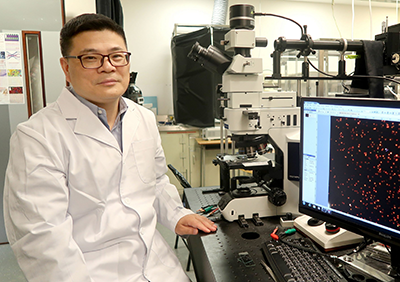Professor Wang has been concentrating on the research of applying colloidal plasmonic metal nanocrystals in daily life for many years. Plasmonic nanocavities can be applied to spectral detection instruments in fields ranging from food, environmental monitoring, medicine to agriculture, but formulating a reproducible way to form nanocavities with accurate gap distances is a great challenge.
With the support from Croucher Foundation, Professor Wang will develop robust approaches to construct two-dimensional nanosheet-gapped plasmonic nanocavities, hoping to apply in communications and display devices and photodetectors in the future, as well as to devise methods for advanced light emission, modulation, and detection.
University Press Release












